“Stop acting as if life is a rehearsal. Live this day. The past is gone, the future is not guaranteed”
The quote sounds very attractive, doesn’t it? It relieves one from worrying about the past and preparing for the future. However, take one minute and think about it once again.
How can one act on now without being influenced by the experiences of the past? Ex: A country, a company, a school, or a community plans the current year based on the learnings from the past year.
How can one act on now without considering the future? Ex: You exercise today to be healthy in future. Another example: Imagine if one took his vehicle on the road but had no destination. Is that a good thing?
Everything from simple activities to complex decisions are tailored based on past learnings and future plans. Therefore such quotes seem attractive (cha:ru in Sanskrit means attractive; va:k in Sanskrit means words) on the surface but one must see beyond to understand one’s existence and the purpose.
 Self-check: Do you follow cha:rva:ka philosophy which believes in knowledge of only the current moment because it is based on only the sensory perception?
Self-check: Do you follow cha:rva:ka philosophy which believes in knowledge of only the current moment because it is based on only the sensory perception?
If so, it means that you base your life on satisfying the senses for the current moment.
Buddham saranam gaccha:mi
The sense organs are not the only assets in a human body. The mind that thinks based on inference is another source of knowledge that must help lead one’s life. The mind says that it does not make sense to live without concern for others in the process of fulfilling our desires. The mind said that it makes sense to do righteous deeds for yourself and for the society you live in. Therefore, another school of thought arose where people gave importance to what their mind said or felt is right. This is called ‘Buddhism’.
 Self-check: Do you follow the Buddhist philosophy which believes in knowledge as perceived by inference driven by one’s will or mind.?
Self-check: Do you follow the Buddhist philosophy which believes in knowledge as perceived by inference driven by one’s will or mind.?
If so, it means that you base your life on what your mind feels or believes is correct.
This is superior to the first school of thought. However, such mind-driven inferences can lead to incorrect conclusions.
A foreigner was visiting a remote village in India. He noticed traditional washermen who took clothes to a nearby lake and began hitting the clothes on a stone. He wrote, “Indian people are stupid, they are trying to break stone with the help of clothes!”
Who is stupid in this story? Inferences can lead to incorrect conclusions!
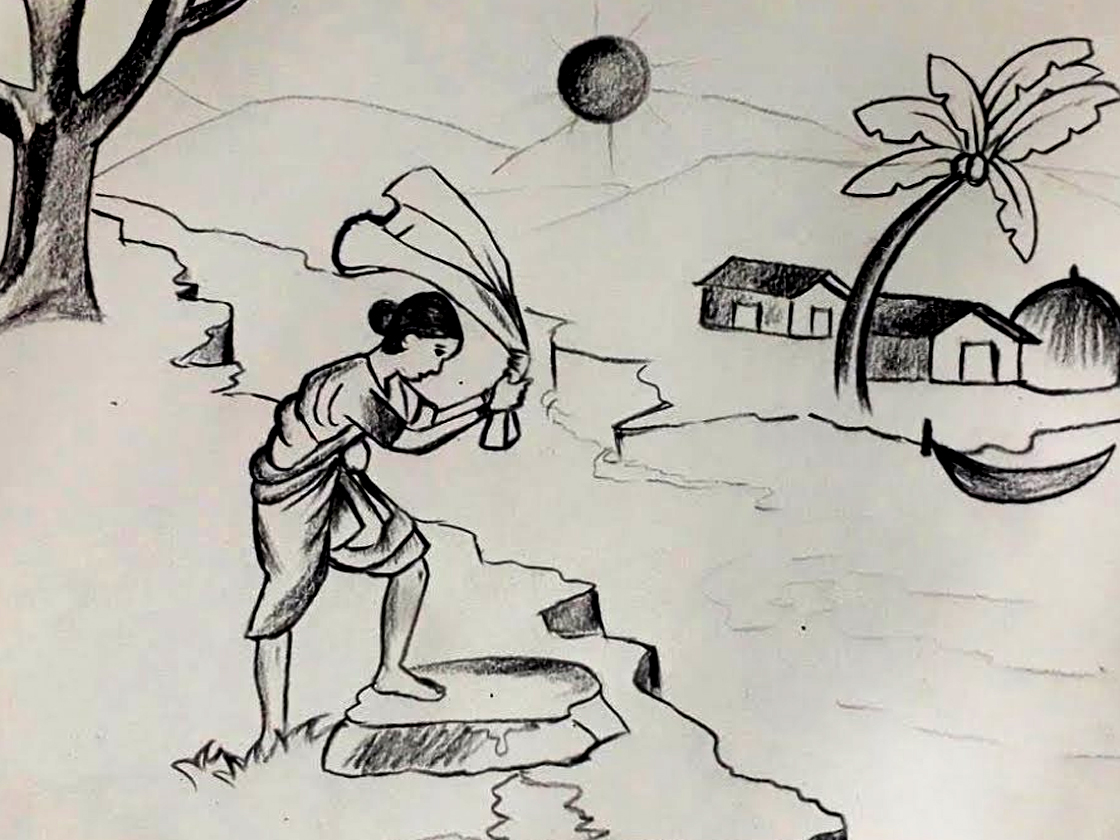
Words of well-wishers!
If leading life based solely on sensory perception and inferences is not comprehensive, then people thought one must lead life based on words of true, selfless, well-wishers. The words of well-wishers can also be tricky. The inability of the recipient or the gap between the giver and the recipient can become a hindrance in perceiving the words of well-wishers.

A foreigner who visited a small town in India enjoys the stay, takes a sumptuous meal at a cosy place, and prepares to leave. He waits for the bus to leave the town. It arrives but stops far from where he was standing, so he starts to run. As he is running, he drops some cash.
His host notices that he dropped the cash and runs behind him calling him out in his language. The foreigner turns around and says “that is not my name!” and hops onto the bus.
One may not perceive the words of well-wishers as intended.
 Self-check: Are you a follower of words from true well-wishers?
Self-check: Are you a follower of words from true well-wishers?
If so, you may end up not understanding the hints, words, or advises from well-wishers and begin to misinterpret or ignore them.
Vedic Philosophy
It was the torch bearers – Sankaracharya, Ramanujacharya and Madvacharya who established the correct way to lead life is to be guided by a source of knowledge, Ve:das which is not composed by human beings and thus completely reliable and authoritative. Such schools of thought based on Ve:dic wisdom are termed: Dvaitha, Advaitha and Visishta Advaitha.
 Self-check: Do you follow Vedic philosophy?
Self-check: Do you follow Vedic philosophy?
If so, it means that you are leading your life based on Ve:dic principles. These Ve:das were heard by ancient rushis as they deeply meditated upon eternal truths. Just as someone hears a radio channel by tuning to a frequency, one can tune their minds to hear those sounds that govern the existence.
Ve:das teach you how to use sensory perception . They teach you how to use knowledge from inference . They teach you how to use knowledge from the words of well-wishers . This comprises the entire knowledge base that one needs to lead a worthy life.
| Advaitha (Adi Shankaracharya) 788 CE – 820 CE |
Dvaitha (Madhvacharya) 1268 CE – 1391 CE |
Visishta Advaitha (Ramanujacharya) 1017 CE – 1137 CE |
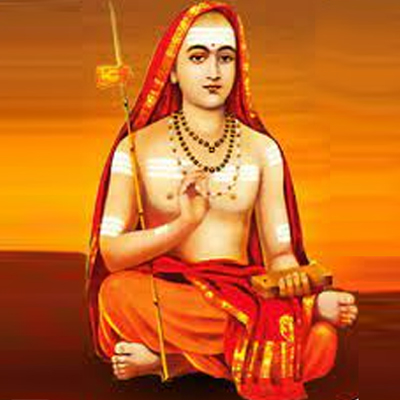 |
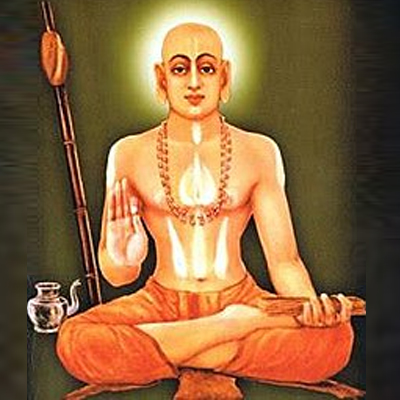 |
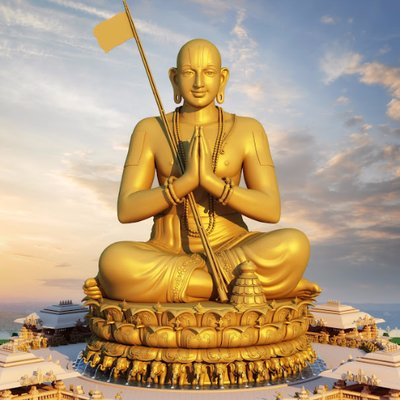 |
| All that exists is simply one entity and nothing else. That one entity is Bramha! Everything else is an illusion. | The existence is comprised of many entities and they are all real. They do not become one. |
The existence is comprised of three entities and they are together to be treated as one union |
| Take any object, such as a flower. The flower is all there is and nothing else. | Take any object, such as a flower. The flower is made of many entities such as parts and attributes: petals, colour, base etc. They are different and do not become one. | Take any object, such as a flower. The flower is one entity but it is qualified with many parts and they exist as one entity. |
| Established truth: God exists and nothing else. You are God. Your child is God. Everyone is God. | Established truth: God (the supreme governing entity), innumerable souls (ourselves), and nature (prakruthi) all exist and are different in qualities and form. | Established truth: God , innumerable souls, and nature are different from each other in qualities and form but exist together as one entity. |
 Self-check: Are you a follower of Advaitha, Dvaitha or Visishta Advaitha?
Self-check: Are you a follower of Advaitha, Dvaitha or Visishta Advaitha?
All these three philosophies are based on Ve:dic wisdom but differ based on the extent of comprehensiveness and clarity in understanding the Ve:dic wisdom.
The perception of Ve:dic wisdom as established by Ramanujacharya is logically, practically and authoritatively comprehensive . It lets one understand the world as it is intended and guides one with the correct way to lead life not compromising on any aspect of Ve:dic wisdom. The choices you make will be based on proper wisdom enabling a peaceful yet energetic lifestyle that is suitable for fruitful co-existence.
These are the 6 philosophical lifestyle options, What is yours?
If we all understand and practice the 120 years of ripened wisdom from Ramanujacharya, we together can keep the world the way it ought to be. To inspire lives that are driven by this comprehensive thought from Ramanujacharya, the Statue of Equality will soon be gifted to the world in the month of ma:gha, February 2022.
Stay tuned for the grace that will glorify the world!
– From the discourse of HH Chinna Jeeyar Swamiji
And Mamahopadhyaya Dr. Samudrala
Venkata Rangaramanujacharya Swami
– 14 th April 2022,
– 1004 th Birth Year Celebrations of Ramanujacharya
– Divya Saketham, JIVA

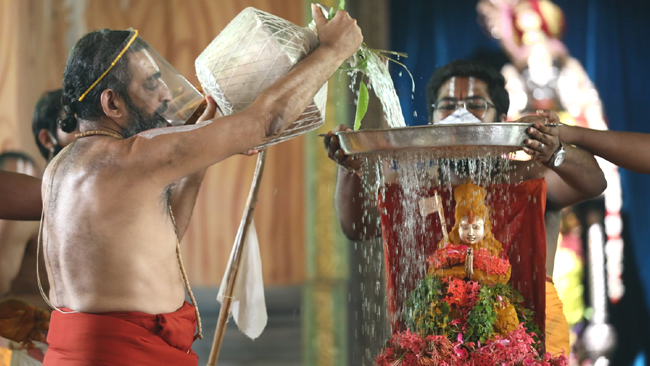

JAISRIMANNARAYAN, AACHARYA CHARANO MEIN DAS KA KOTI KOTI NAMAN EVAM SAASTAANG PRANAAM
🙏🙏🙏🙏🙏 🙏
Jai Srimannarayana!
Salutations to Sri Swamiji!
Salutations to Sri Ramanuja! Wish You Very Many Happy Returns of the Day! Wish You a Very Happy BirthDay Sri Bha:shyaka:r Swamiji!